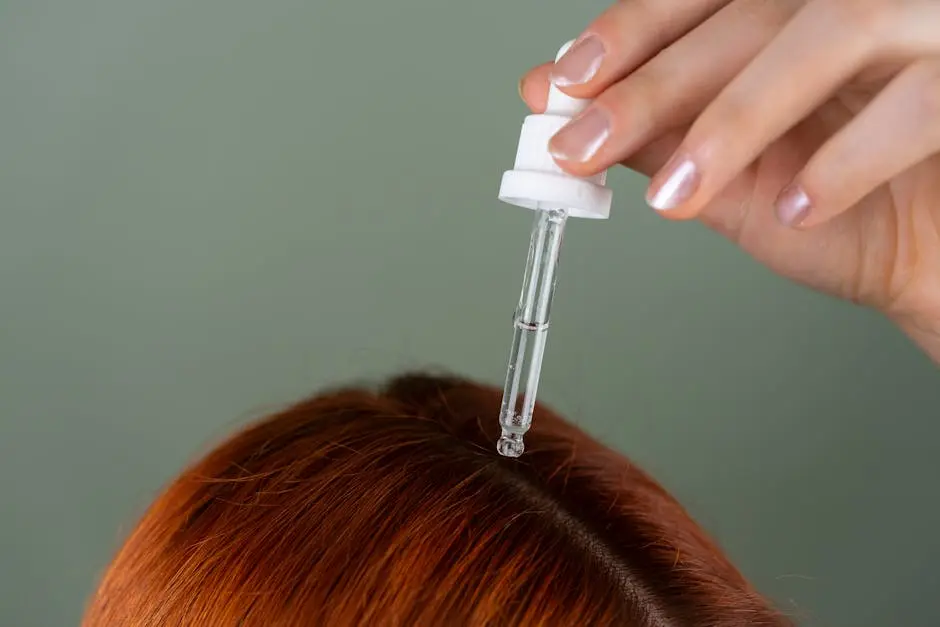Taking care of your scalp is just as important as caring for your skin or hair. The right scalp care products can make a huge difference in your overall hair health and appearance. However, with so many options available, choosing the right products can be overwhelming. In this blog, we’ll guide you through the essentials of selecting the best scalp care products tailored specifically for you.
Understanding Your Scalp Type
Just like your skin, your scalp has its own type, which can range from oily to dry or even sensitive. Knowing your scalp type is the first step in choosing products that won’t harm its delicate balance.
The journey to healthy hair begins with understanding whether your scalp produces too much sebum, leading to oily conditions, or not enough, resulting in dryness. An oily scalp might seem like a blessing for shine, but it can lead to clogs and dandruff. Conversely, a dry scalp often accompanies irritating flakes and itchiness. If you’re unsure of your scalp type, consider seeking advice from a dermatologist or hair care professional who can help you accurately assess your needs.
For those with sensitive skin, a similar caution applies when it comes to scalp care. Sensitivity can be hereditary or triggered by the use of harsh hair products. Being mindful of how your scalp reacts to certain shampoos and treatments is crucial in selecting the appropriate products. Without proper understanding, using the wrong products can exacerbate existing issues, leaving your scalp feeling worse. A gentle approach, starting with mild, natural ingredients, can often lead to better outcomes.
Common Scalp Issues and How to Address Them
Dandruff, itchiness, and hair thinning are common scalp issues many face. Identifying any issues can help you pick the right products that not only treat but also prevent further problems.
Tackling dandruff can be straightforward once you know its cause. Typically, it’s a result of a yeast-like fungus or a dry scalp. Many find relief with anti-dandruff shampoos containing active ingredients like ketoconazole or zinc pyrithione. While dealing with itchiness might suggest a need for more hydration, addressing hair thinning requires a different strategy. Hair loss can be genetic or the result of stress and poor nutrition, making it essential to consult professionals for an effective course of action.
The scalp can often be a mirror of one’s overall health. Stress, diet, and lifestyle choices contribute significantly to the condition of your scalp and hair. Incorporating a balanced diet rich in vitamins and minerals not only nourishes your body but fortifies your scalp against such common problems. Regular exercise increases blood circulation, which can encourage hair growth and alleviate stress-related hair issues, highlighting the importance of a holistic approach to scalp health.
Ingredients to Look For and Avoid
Certain ingredients can either nourish your scalp or aggravate existing issues. Learn about the best ingredients to seek out and which ones to steer clear of based on your scalp needs.
When it comes to nourishing your scalp, natural oils like argan oil and tea tree oil are celebrated for their hydrating properties and ability to restore balance. Meanwhile, products packed with sulfur or paraben should be avoided as they may irritate sensitive scalps. Moreover, scalp-oriented products with salicylic acid help exfoliate dead skin cells, providing relief to those suffering from dandruff by breaking down flakes and reducing itchiness.
If you find your scalp feeling tightly wound and itchy, it might be worth considering shampoos with fewer synthetic fragrances. Fragrances can not only trigger irritation but might also cause allergic reactions. Products marketed with ‘clean beauty’ tags often emphasize the absence of such irritants, offering a safer alternative for sensitive scalps. Exploring such options can lead to long-term benefits and reduced flare-ups in scalp discomfort.
How to Test Scalp Products Safely
Performing a patch test or starting with a smaller amount can help you see how your scalp reacts to new products, ensuring you pick what’s best without causing unnecessary irritation.
When considering a new scalp product, always start with a patch test on a small, inconspicuous area of your scalp. This process often involves applying a tiny amount behind your ear or at the nape of your neck. After 24 hours, if you notice no adverse reaction, it’s generally safe to proceed with regular use. For shampoos, begin with small quantities and gauge your scalp’s response over a couple of washes. Any persistent itchiness or redness should prompt a re-evaluation of the product’s suitability.
Adapting Your Scalp Care Routine with the Seasons
Just like your skin, your scalp needs might change with the seasons. Discover how to adjust your scalp care to keep it healthy year-round.
During the colder months, indoor heating can strip moisture from both skin and scalp, making hydration essential. Integrating a moisturizing scalp mask weekly can combat dryness. Conversely, the summer months often bring humidity, enhancing oil production. Opt for lighter, oil-balancing products during this period. By attuning to these seasonal demands, maintaining a healthy scalp becomes an attainable goal year-round, equipping you to embrace any climate with confidence.
Making the Right Choice for a Healthy Scalp
Choosing the right scalp care products doesn’t have to be a daunting task. By understanding your scalp type, identifying common scalp issues, and being informed about ingredients, you can make confident decisions that will promote healthy hair and a happy scalp. Remember, a little research and care go a long way in your scalp care journey! For more guidance on achieving a healthy scalp, visit our homepage.





